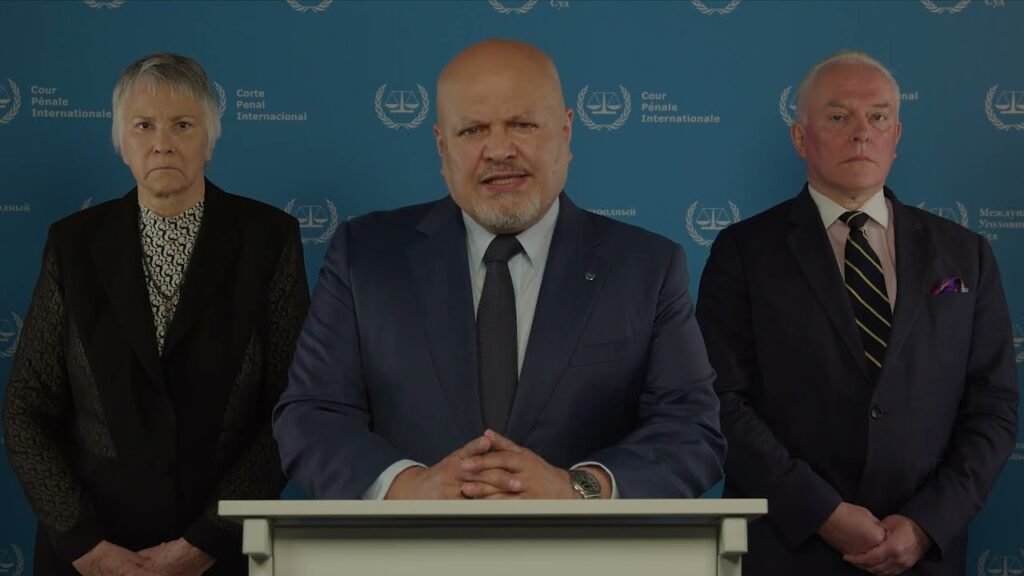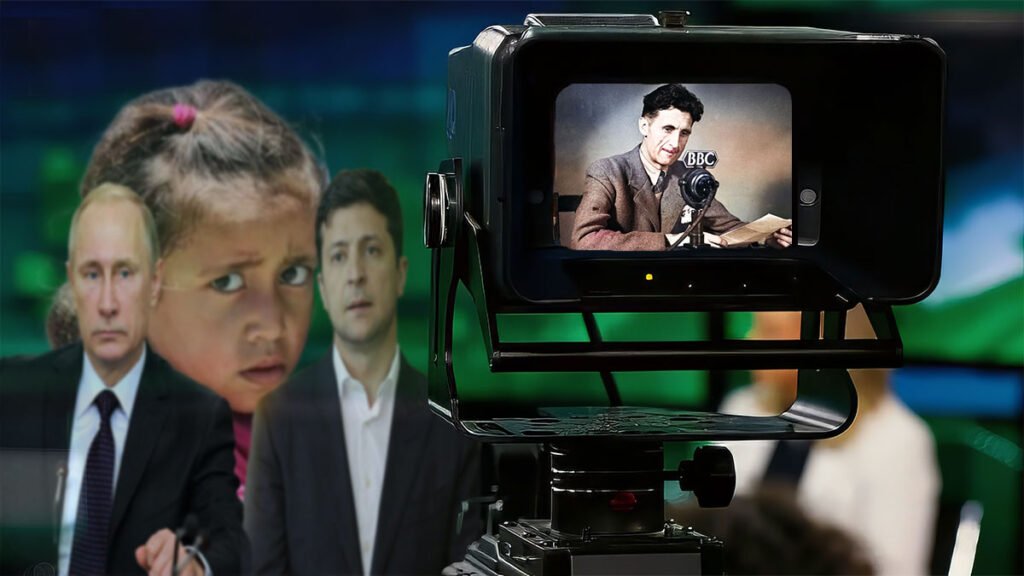The Facade of International Justice: Israel’s Occupation and the ICJ’s Belated Response
UN court orders Israel to end its occupation of Palestinian territories…
The United Nations’ top court, in a moment of rare clarity, has finally uttered what we on the left have long known: Israel’s occupation of Palestinian territories is as illegal as it is immoral. This pronouncement, albeit non-binding, opinion, lacking the teeth of enforceability, carries the weight of truth that even the most ardent Zionist apologists cannot ignore.
However, we must view this development with a critical eye, recognising it as a tardy and inadequate response to decades of systemic oppression and, more recently, outright genocide. The ICJ’s pronouncement, while welcome, comes against the backdrop of over 38,000 Palestinian deaths in Gaza alone since October 2023 – a staggering toll that lays bare the true nature of Israel’s actions.
The court’s findings – that Israel should end its occupation “as rapidly as possible,” halt settlement activity, and pay reparations – are hardly revelatory. They merely reaffirm what has been painfully obvious to objective observers for decades: Israel’s occupation and settlement enterprise fundamentally violate international law and Palestinian human rights.
However, Netanyahu, that paragon of right-wing delusion, has predictably dismissed this ruling as “a decision of lies”. But what else could we expect from a man whose political career is built on the shifting sands of historical revisionism and ethnic supremacy? His claim that Jews cannot be “occupiers in their own land” is a rhetorical sleight of hand that would have Goebbels laughing from the auditorium.
Let us not mince words: the settlements that pockmark the West Bank and East Jerusalem are not mere “neighbourhoods”, but cancerous growths of colonialism. They are the physical manifestation of a state policy designed to strangle Palestinian aspirations for statehood, a slow-motion ethnic cleansing dressed up in the garb of “security concerns”.
As the inimitable Noam Chomsky once observed, “The incursion of Israel into the territories is much more than an ‘occupation’. It’s a colonization, and a vicious one.” How right he was, and how prescient those words remain.
The historical gymnastics required to justify this occupation are truly Olympian. Yes, the Jewish people have ancient ties to this land. But so too do the Palestinians, whose continuous presence there stretches back millennia. If we were to redraw the world’s borders based on Bronze Age land claims, we’d be in for a geopolitical circus that would make the current mess look positively orderly by comparison.
The bitter irony is that Israel, a state born from the ashes of one of history’s greatest crimes, now stands accused of perpetrating its own brand of apartheid. The ghosts of Deir Yassin and Sabra and Shatila haunt the corridors of power in Tel Aviv, even as the bulldozers of “progress” flatten more Palestinian homes.
Let us be clear: criticism of Israeli policy is not anti-Semitism. It is a moral imperative.
Breaking the Silence: The ICC’s Late Call for Justice in Palestine

Gaza has descended into a grotesque carnival of carnage, with the Israeli state playing the role of ringmaster in a circus of death. Since the Hamas attacks of October 7th, 2023, we’ve witnessed not a military operation, but a calculated genocide against the Palestinian people of Gaza.
Yes, it’s high time we called this what it is: a “genocide”. Not a “conflict”, not a “war”, but a deliberate attempt to break the will and spirit of a people. The ghosts of Deir Yassin and Sabra and Shatila now have company, as the spectre of Gaza’s dead joins their mournful chorus.
The numbers are a grim litany of human suffering: over 38,000 Palestinians dead, countless more maimed, however, a letter published in the Lancet suggests the final figure could eventually be about 186,000. and a society reduced to rubble. This isn’t collateral damage; it’s a war crime writ large across the blood-soaked sands of Gaza.
And now, at long last, the lumbering beast of international justice stirs from its slumber. The International Criminal Court, that toothless watchdog of global morality, hints at arrest warrants for Netanyahu and his henchman Gallant. One is tempted to cry “Better late than never!”, but such platitudes ring hollow in the face of such monumental suffering.
It’s crucial to recognise that these legal manoeuvres, however unprecedented, occur within a broader geopolitical context marked by Western complicity. The United States and its allies have consistently shielded Israel from meaningful consequences, vetoing UN resolutions and maintaining robust military and economic support even in the face of clear violations of international law.
The nationalist not only does not disapprove of atrocities committed by his own side,
George Orwell
but he has a remarkable capacity for not even hearing about them.
As George Orwell, that keen-eyed observer of power and its abuses, once noted, “The nationalist not only does not disapprove of atrocities committed by his own side, but he has a remarkable capacity for not even hearing about them.” How true this rings today, as Western leaders contort themselves into pretzels to avoid condemning Israel’s actions. Instead, they cower behind the skirts of “national security” and “self-defence”, as if these magic words could wash the blood from their hands.
We must ask ourselves: Will the potential ICC warrants translate into genuine accountability, or will they join a long list of unenforced judgments against powerful actors? The historical record provides little cause for optimism. From the invasion of Iraq to the ongoing occupation of Palestine, the architects of illegal wars and occupations have largely escaped justice, protected by a system that claims universality but practices selectivity.
The ICC’s belated action is less a triumph of justice than an indictment of our collective moral failure. While Karim Khan’s office shuffled papers and weighed political considerations, Gaza burned. Children are buried beneath the rubble of their homes, hospitals are reduced to smoking craters, and the very fabric of Palestinian society is shredded by Israeli bombs.
The Hypocrisy of Selective Justice

It’s instructive to consider how drastically different the international response would be if this ICJ ruling were against a state not firmly ensconced within the Western sphere of influence. If Russia, Iran, or any other nation deemed a “rogue state” by the self-appointed arbiters of global order were found to be illegally occupying territory, we would undoubtedly witness a very different scenario unfolding.
In such a case, we would likely see immediate calls for enforcement from the so-called “international community” – a euphemism often employed to disguise the preferences of Washington and its closest allies. There would be demands for the immediate withdrawal of occupying forces, backed by the threat of severe economic sanctions. Western media would be awash with impassioned pleas for liberation, and one could easily imagine NATO or a “coalition of the willing” preparing for military intervention under the banner of enforcing international law.
This stark double standard reveals the fundamentally political nature of international justice. The selective application of legal principles and the uneven enforcement of court rulings expose the underlying power dynamics that truly govern our global system. It’s a vivid illustration of what international relations theorist Hedley Bull termed “the anarchical society” – a world where order is maintained not through consistent application of law, but through the machinations of great powers.
The case of Palestine throws this hypocrisy into sharp relief. Despite decades of UN resolutions, ICJ rulings, and now potential ICC indictments, Israel continues to enjoy impunity, shielded by its strategic value to Western, particularly American, interests in the Middle East. This protection extends beyond mere diplomatic cover; it includes billions in military aid, advanced weapons systems, and consistent vetoes at the UN Security Council to block any meaningful action.
This selective approach to international law not only undermines the credibility of global institutions but also fuels cynicism and resentment, particularly in the Global South. It reinforces the perception that international law is merely a tool of the powerful, to be invoked or ignored based on geopolitical convenience.
As we contemplate this disparity, we must ask ourselves: What does it say about our global order when the liberation of an occupied people depends not on the merit of their cause or the legality of their oppression, but on their strategic value to dominant powers? The absence of calls for a “coalition to liberate Palestine” speaks volumes about the true nature of our international system and the hollow rhetoric of human rights that often accompanies it.
This hypocrisy serves as a stark reminder that real change will not come from the halls of power or the chambers of international courts. It must emerge from grassroots movements, from a shift in public consciousness, and from the relentless exposure of these double standards. Only by confronting this systemic bias can we hope to build a truly just international order – one that upholds the rights of all peoples, regardless of their geopolitical alignment.
The ICJ opinion and potential ICC action, while noteworthy, must not lull us into complacency. Real change will come not from international courts, but from grassroots movements, including BDS (Boycott, Divestment, Sanctions), and a fundamental shift in public opinion, particularly in the West. Only by dismantling the structures of support for Israeli apartheid – military aid, diplomatic cover, and economic collaboration – can we hope to see genuine progress towards justice and self-determination for the Palestinian people.
In the words of the great Howard Zinn, “The challenge remains. On the other side are formidable forces: money, political power, the major media. On our side are the people of the world and a power greater than money or weapons: the truth.” It is this truth – the lived reality of Palestinian oppression and resistance – that must guide our actions and inform our analysis, even as the machinery of international law belatedly creaks into motion.
Support Independent Journalism Today
Our unwavering dedication is to provide you with unbiased news, diverse perspectives, and insightful opinions. We're on a mission to ensure that those in positions of power are held accountable for their actions, but we can't do it alone. Labour Heartlands is primarily funded by me, Paul Knaggs, and by the generous contributions of readers like you. Your donations keep us going and help us uphold the principles of independent journalism. Join us in our quest for truth, transparency, and accountability – donate today and be a part of our mission!
Like everyone else, we're facing challenges, and we need your help to stay online and continue providing crucial journalism. Every contribution, no matter how small, goes a long way in helping us thrive. By becoming one of our donors, you become a vital part of our mission to uncover the truth and uphold the values of democracy.
While we maintain our independence from political affiliations, we stand united against corruption, injustice, and the erosion of free speech, truth, and democracy. We believe in the power of accurate information in a democracy, and we consider facts non-negotiable.
Your support, no matter the amount, can make a significant impact. Together, we can make a difference and continue our journey toward a more informed and just society.
Thank you for supporting Labour Heartlands








